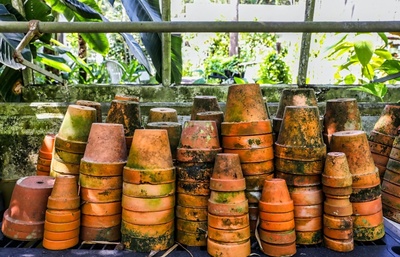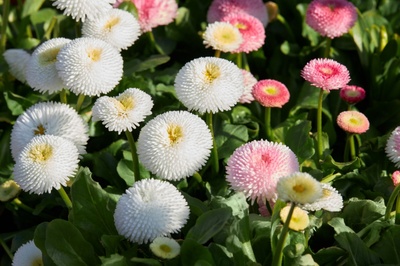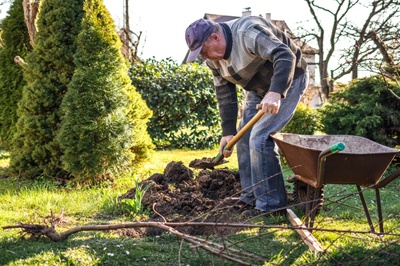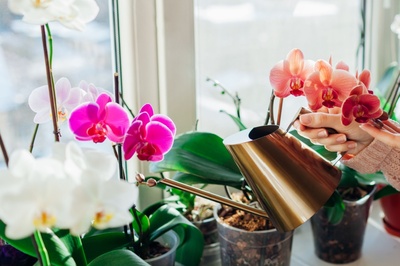What is Peat Free Compost & Should I Use It?
What is Peat & why do we use it?
Peat is a non-renewable resource that is harvested from bogs and wetlands, and it is used extensively in horticulture as a soil conditioner and a growing medium for plants.
Peat is popular in gardening because it holds water really well and has a consistent quality which is good for growing plants, including fruit and veggies. However, the extraction of peat has significant environmental impacts, including habitat destruction, greenhouse gas emissions, and the release of stored carbon.
Therefore, many gardeners and growers are turning to peat-free compost as a more sustainable alternative.
When is the UK going Peat Free?
The sale of peat for use in the amateur gardening sector will be banned by 2023, mainly to protect peatlands and the natural environment. After this ban, only peat-free alternatives will be available to buy in garden centres.
We have a number of peat-free alternatives in-store and on our website – have a browse today.
Is Peat Free Compost any good?
Peat-free compost is a type of soil amendment that has become increasingly popular in recent years due to concerns about the environmental impact of peat extraction.
It’s made from a range of organic materials, including wood waste, bark, coconut coir, green waste, and composted garden waste. These materials are mixed together in varying proportions to create a soil-like substance that is rich in nutrients and beneficial microorganisms.
Some peat-free composts may also contain added nutrients, such as nitrogen, phosphorus, and potassium, to support plant growth.
Is Peat Free Compost better?
One of the main benefits of peat-free compost is that it is more sustainable than peat-based products.
Peat bogs are vital habitats for a range of plant and animal species, and their destruction can have significant ecological consequences. In addition, peat extraction contributes to greenhouse gas emissions, as the carbon stored in peat is released into the atmosphere when it is harvested and dried.
By choosing peat-free compost, gardeners and growers can help to reduce the demand for peat and support more sustainable land use practices.
Disadvantages of Peat-Free Compost
There are some potential drawbacks to using peat-free compost that gardeners should be aware of. For example, some peat-free products may be less consistent in terms of quality and nutrient
content than peat-based products, which can make it harder to achieve consistent results. In addition, some peat-free composts may be more prone to drying out or becoming waterlogged than peat-based products, which can affect plant growth.
How to garden Peat Free
Gardeners are probably now used to growing in peat compost, so introducing a different alternative (with various materials) may make some people skeptical. It’s important to understand the type of peat alternative that you will be using, to ensure you get the best possible outcome.
For example, some peat-free composts are quite free-draining, so need to be watered more often. Here are some of our top tips to help you garden peat-free:
- Use natural pest control methods: Avoid chemical pesticides and instead use natural methods to control pests and diseases. Encourage natural predators such as ladybugs, and use companion planting to create a diverse and healthy garden ecosystem.
- Water wisely: Use rainwater or greywater to water your plants, and avoid overwatering. Use a watering can or drip irrigation system to deliver water directly to the roots of your plants, and mulch around them to retain moisture in the soil.
- Choose plants that are suited to your soil type: Select plants that are well-adapted to your local growing conditions, and choose varieties that are resistant to pests and diseases. This will help to reduce the need for fertilizers and other inputs.
- Buying perennial plants will mean that you can cut down on the amount of peat-based compost you need
Our team of experts at St Peters Garden Centre can help you out with the best option for your garden.
So, Why Peat-Free Compost?
Being made from sustainable, organic materials, it’s a huge YES for the environment. Most peat-free mixes are also extremely high in nutrients (and rather bulky) which means they are fantastic soil.
It’s a promising alternative to traditional peat-based products for gardeners and growers who are concerned about sustainability. By choosing peat-free compost, you can help to reduce the environmental impact of your gardening activities while still providing your plants with the nutrients and growing conditions they need to thrive.
When selecting a peat-free product, it's important to look for high-quality, consistent formulations that have been tested for plant growth and performance. With the right peat-free compost, you can create a healthy, sustainable garden that supports the natural world around you.
At St Peters Garden Centre, we are fully aware of the issues surrounding peat-free compost and have been running tests on our nursery for the last 2 years, this year all of our homegrown plants will officially be Peat Free! You can read more about our sustainability efforts on our environmental page.
If you have any questions, please contact us.




